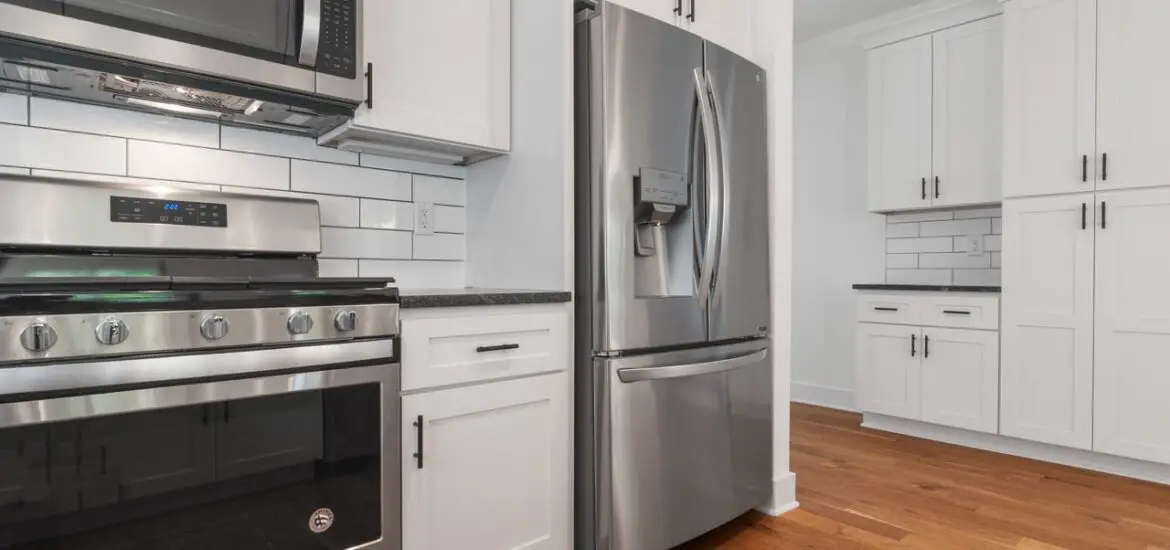A noisy refrigerator compressor is quite discomfiting. If you are looking for how to make a refrigerator compressor quiet, look no further than this article.

Table of Contents
How to Make a Refrigerator Compressor Quiet
Try any of the following to quieten a noisy refrigerator compressor:
1. Use a Mat
Set the refrigerator on a thick mat. The mat will absorb the noise generated by the compressor. There are mats for deadening sounds specifically. So, when you find that your refrigerator compressor creates noise if it stands on the bare floor, use one of these mats. But if you cannot get one, use any thick mat, preferably rubber.
Measure your refrigerator before buying a suitable mat. It has to accommodate the refrigerator with some leftover space, but nothing excessive. That way, no part of the refrigerator bottom touches the floor.
2. Level the Refrigerator
It may seem as if refrigerator leveling won’t solve a noisy compressor, but fixing the leveling legs solves many minor and major issues. Therefore, check the refrigerator’s leveling, and fix it if you notice it is not level. Consult the user manual that came with the refrigerator for instructions on how to level the refrigerator correctly.
3. Set It in an Alcove
Positioning the refrigerator in an alcove confines the noise from the compressor to one place. The noise may get louder when you are close to the refrigerator. But you won’t hear it so loud when you are not so close to it.
However, ensure you check the condenser coils and fan from time to time. Confining the refrigerator to an alcove may be good, but it may also mean it does not get good air circulation. Over time, the coils will overheat and affect the compressor and fan.
Therefore, don’t move the refrigerator too close to the walls of the alcove. Leave a gap of about two inches on each side and at the back. It helps air to move freely around the refrigerator.
4. Soundproof the Surrounding Walls
Since you cannot add an extra layer of covering to the back of the refrigerator, soundproof the rear wall and those to the sides. Combine acoustic and sound-blocking materials to create what you need to soundproof the compressor. You want to trap as much sound as you can within the compressor compartment.
Similarly, mass-loaded vinyl does a great job of soundproofing. If you cannot lay your hands on acoustic materials, find this type of vinyl. It is typically limp mass, so does not throw off sound waves around a room.
Ensure you create enough space between the soundproofed walls and the refrigerator. As with the condenser coils, keeping the refrigerator walls too close to the surrounding surfaces generates heat. The refrigerator will stop cooling if the heat increases and does not subside.
5. Clean the Coils and Fan
This task may not look like it does much for masking compressor noise, but dirty condenser fan and coils affect the sound of the compressor. When the fan is dirty, it creates a lot of noise. More times than not, you may assume the compressor is generating noise. The coils also make some noise when they fail to dissipate heat due to a significant amount of dirt on them.
Therefore, it helps to clean the components and ensure they remain clean. You can check the coils from time to time and clean them every six months. You can clean the fan more often as it tends to attract more dirt.
Some professionals can do the cleaning job. So, if you are not sure of correctly cleaning the coils and fan, hire one to do it. But note that it is a pretty straightforward job.
6. Add Shelves
If there is a vacuum around the refrigerator, noise from the compressor will appear louder. Check the position of the refrigerator in the kitchen; if there is a lot of space around it, you can construct shelves within the area.
The shelves are for nothing else than to absorb some of the noise. If you have the skills, you can build them yourself to save money. But you have to know how to do it so the shelves serve their purpose. Otherwise, get an experienced hand to construct the shelves in such a way that they successfully soak up some of the noise.
Needless to say, the shelves should not block proper airflow around the refrigerator, especially the compressor and coils. If they do, the aim would be defeated; heat will cause the compressor and coils to create noise.
7. Use a Less Noisy Refrigerator
If your refrigerator is old, it may be time to discard it and go for a newer model. Newer refrigerators are almost noiseless. So, if the noise from the compressor is so much of a bother, consider investing in a new refrigerator. After all, the noise may be a sign of a failing compressor.
Check out these other articles…
Refrigerator Compressor Leaking [How to Fix]
Refrigerator Compressor Failure [How to Fix]
Refrigerator Not Cooling [Proven Solutions]
Refrigerator Compressor Overload [Solutions]
Refrigerator Compressor Turning On and Off [Issues Solved]
Refrigerator Compressor Hums [Solutions]
Refrigerator Compressor Making a Knocking Noise [How to Fix]
Recap
A refrigerator should operate quietly; that is one of the reasons we all love the appliance. But when you have a noisy one, especially with the noise coming from the compressor, it is crucial to learn how to make a refrigerator compressor quiet. Fortunately, there are quick and inexpensive ways to achieve it.
Get Instant Help — Ask An Experienced Verified Appliance Technician
Need expert help? Click here to use the chat box on this page to speak with a verified appliance technician right away. No need for expensive in-home service calls. No appointments. No waiting.